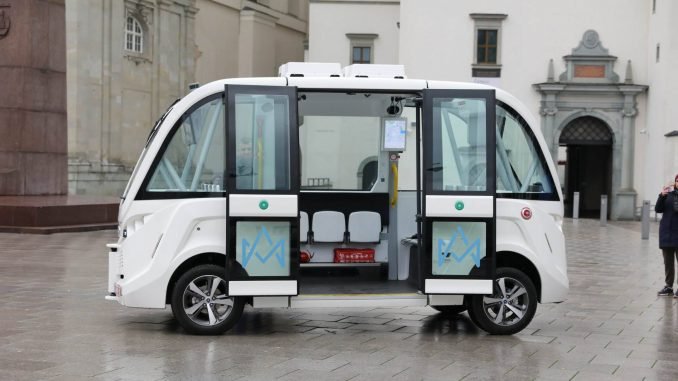
“The legal regulation is in place, we only lack the self-driving vehicles, i.e., manufacturers who would be interested in testing their driverless cars on roads. In our opinion, proper dissemination of information and contacts with potential manufacturers of autonomous vehicles can attract their attention,” Vytautė Šmaižytė, adviser to Lithuania’s transport and communications minister, told BNS.
In her words, it is difficult to specify a date of an outbreak of autonomous vehicles could be expected in Lithuania, as it depends on the plans of manufacturers.
Vitalijus Andrejevas, acting chief of the Road Administration, said Lithuania’s roads were ready to welcome self-driving cars, with Vilnius-Kaunas highway being the first stretch they could drive on.
“The use of autonomous vehicles is the most attractive on highways, for instance, the highway from Vilnius to Klaipeda or from Vilnius to Panevezys. The roads are indeed suitable for such vehicles,” Andrejevas told BNS.
Paulius Vertelka, executive director at Infobalt association, said Lithuania was also ready in technological terms.
“Our network is advanced to the necessary level and fully sufficient, as nearly all of Lithuania is covered by 4G connection. Our master highways, which are technically most suitable for tests of these vehicles, are covered by the connection and the speeds are sufficient,” Vertelka told BNS.
Last November, a Navya Arma self-driving car was tested in Lithuania, becoming the first vehicle of this type in Lithuania.

Be the first to comment